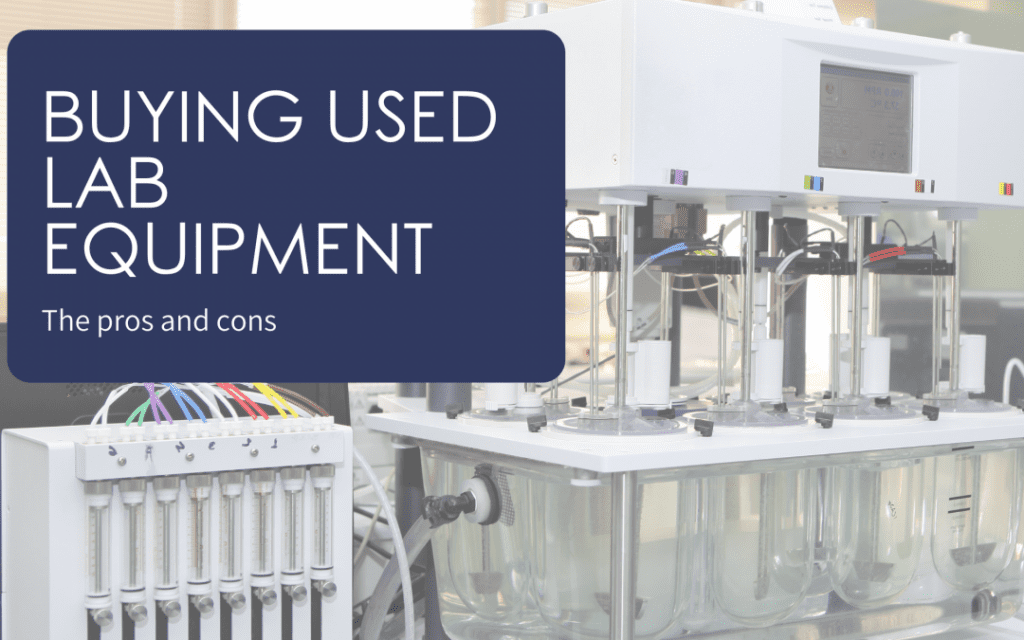
When building a new lab to a restrictive budget buying new equipment is not always possible. So you may consider going for used lab equipment instead of the new ones and still find efficient and cost-effective equipment.
When purchasing any laboratory equipment, whether new or used, what is most important is its reliability, efficiency, and accuracy.
When considering buying used lab equipment, consider the following:
Pros of Buying Used Lab Equipment
- It’s more affordable than purchasing new lab equipment
The number one advantage of buying used lab equipment is that it is always cheaper than a brand new one. This is a plus if your budget is limited because you will still get good quality equipment at a lesser cost. You can make a huge saving that can make a big difference to the overall budget. The affordable price of used lab equipment will allow even a small start-up lab to get all the equipment they need on a budget.
- Low Maintenance Cost
Buying used lab equipment can lower its maintenance cost, especially if the previous user provided proper servicing. This means that the cost of keeping the equipment functional will be less.
- You can get great deals
Purchasing used lab equipment does not necessarily mean that you will get unreliable equipment. Some sellers will conduct a thorough product inspection to ensure that you get sturdy, functional, and reliable equipment.
Some companies also sell ex-demonstration pieces of equipment, which are a great deal if you can get them. This is because the equipment was only used for demonstration and can’t be sold as new. This means that you will get equipment in the manufactures current range price but at a lower price. You can get a great deal of lab equipment in excellent condition for a much lesser price.
- No Delays
Buying new lab equipment for your setting up your new laboratory can lead to delays if the seller is out of stock and requested a backed-up order from the supplier. This can often especially in the current climate cause lengthy delays to the process. Secondhand equipment is already in stock, meaning you can get it almost instantly.
The Cons of Buying Used Lab Equipment
- Lack of Warranty
Purchasing used lab equipment may mean that the warranty period has expired already. There is no guarantee that if you get faulty equipment you can return it to the seller. Do your research properly and ensure the seller you choose can provide a guarantee is possible.
- Risk of Acquiring a Faulty Machine
The greatest disadvantage of getting used lab equipment is that it can be faulty or in poor condition. This will incur you further costs of repairs which might end up being expensive. Also, used lab equipment might be outdated, and if it does not work efficiently for the type of your research because it is obsolete or reduces your productivity and may mean you have to replace it earlier than if it were new.
- Unknown Supplier
Another risk of buying used lab equipment is that you may be dealing with a supplier who has no credentials and certifications. Such a supplier may be selling equipment that has not passed the mandatory inspection and doesn’t have a clear record of where the machine was used and whether it was inspected and maintained regularly. You will only rely on their word of mouth, and once you purchase the equipment, the supplier will not be there for future assistance. You will need to have confidence that the equipment you are being sold is functioning before purchasing it.
Conclusion
Buying used lab equipment comes with its pros and cons. By doing proper research, you can get second hand items in perfect conditions and save some extra cash.
If you are looking for secondhand or used lab equipment please contact us to see how we can help.

